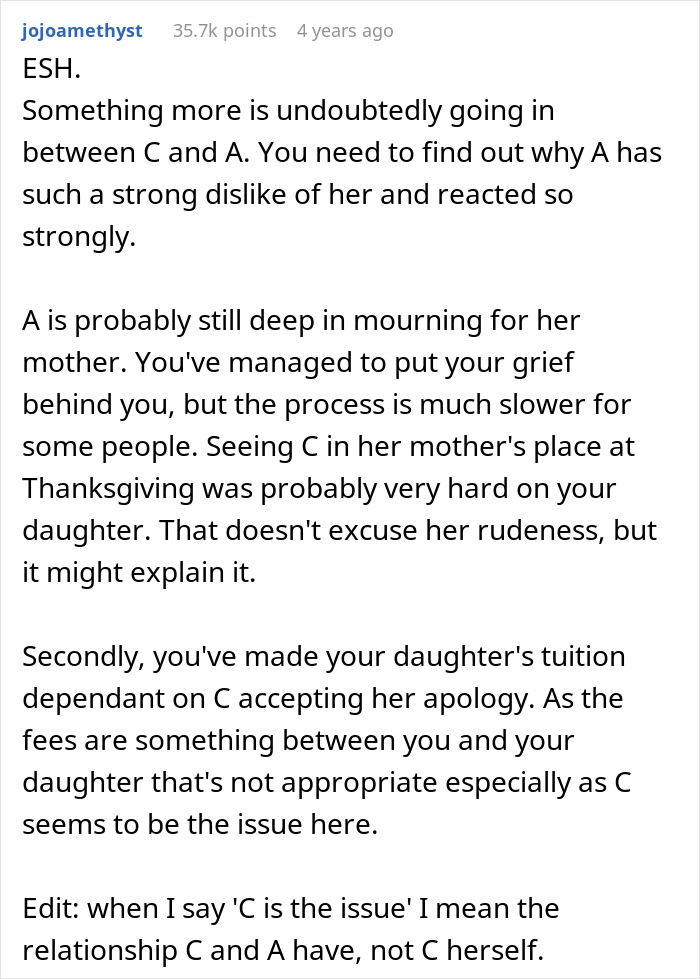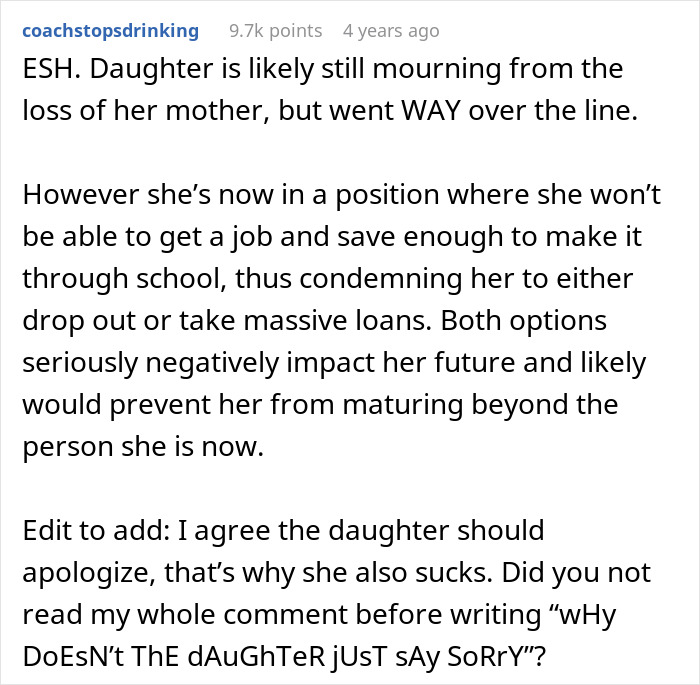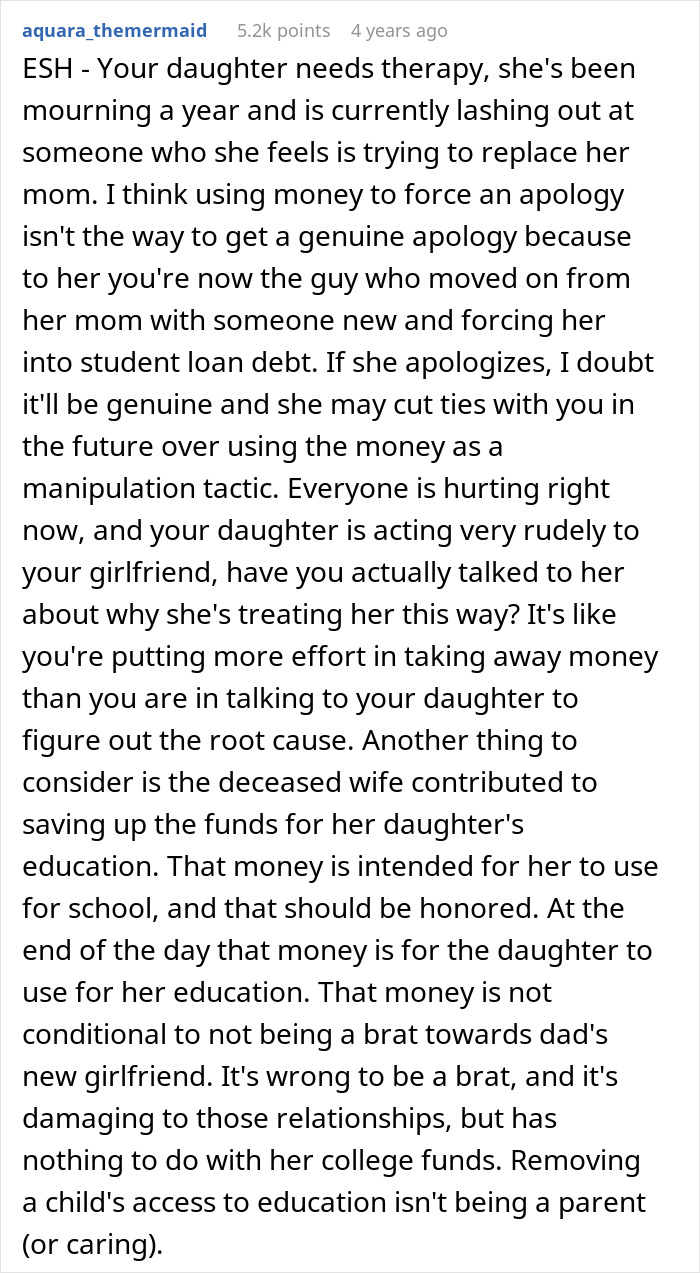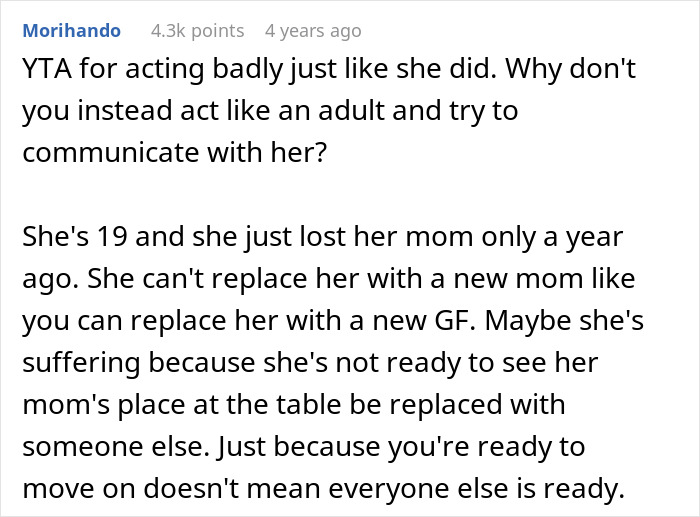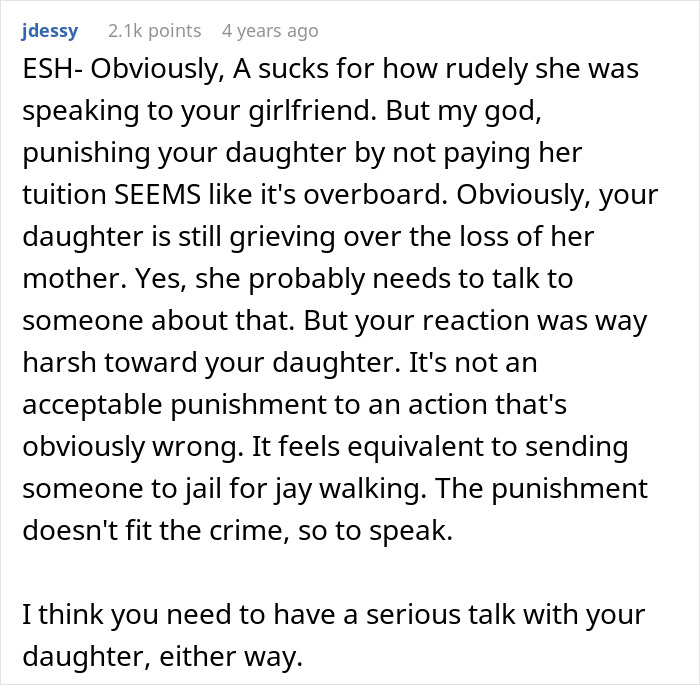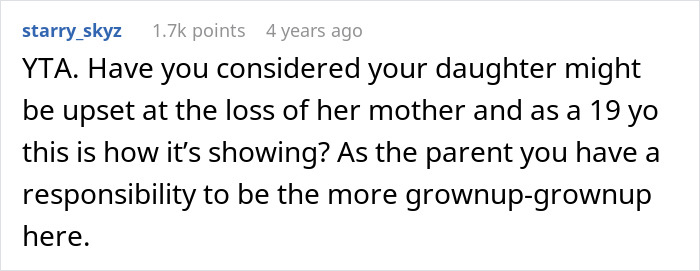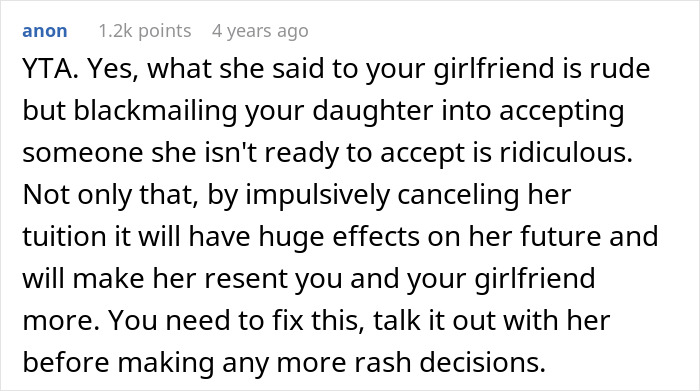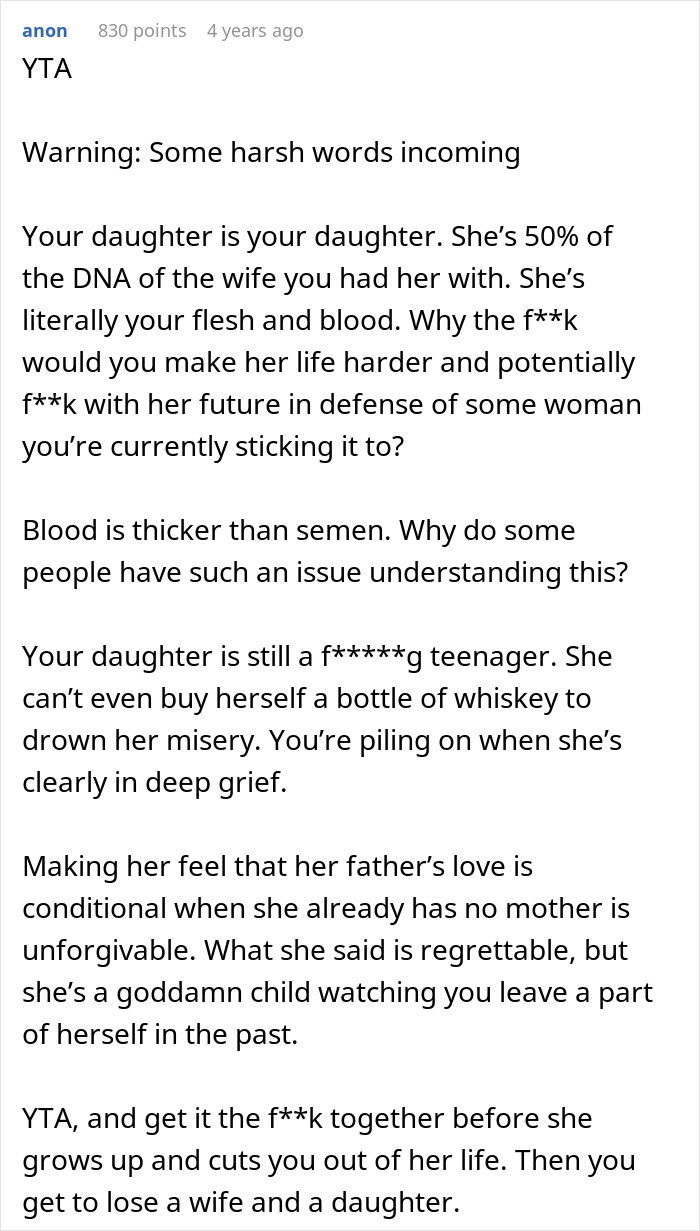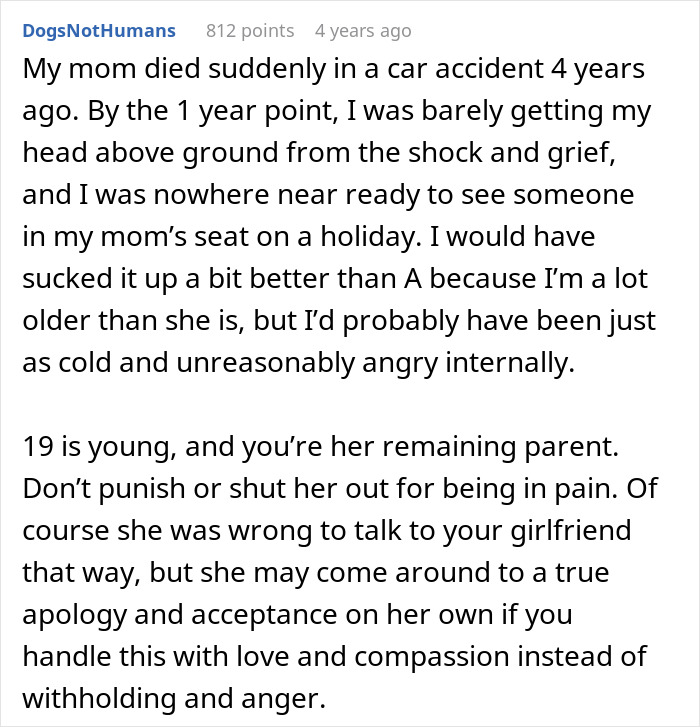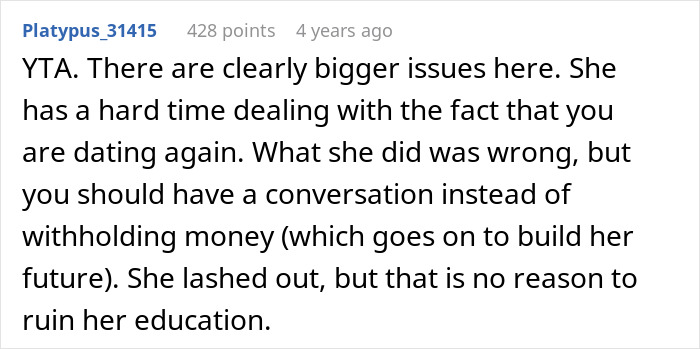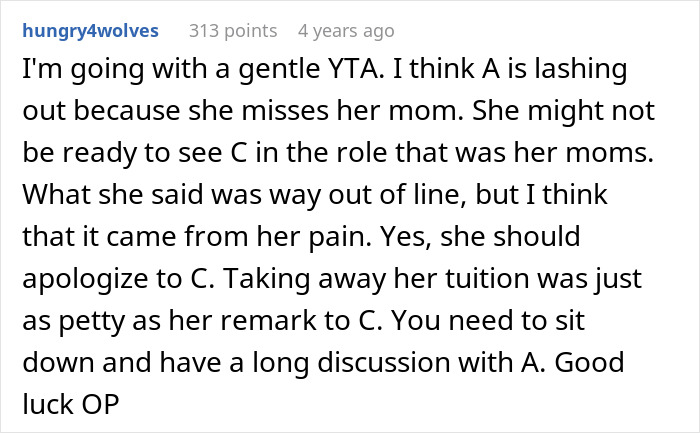The loss of a family member is one of the biggest traumas a person can experience. Whether it’s a mother or a spouse, family members need enough time to grieve and come to terms with what life will be like now that the other family member is gone. After some time passes, and often to much of the children’s dismay, the bereaved parent might move on with another partner.
But is putting them before the children fair? This father threatened his 19-year-old daughter that he would stop paying her tuition if she didn’t apologize for her rude behavior toward his new girlfriend. Wanting to check if he made the right choice, he decided to consult other netizens.
Adult children may find it hard to accept their widowed parent has found someone new

Image credits: Karolina Grabowska / pexels (not the actual photo)
When this daughter insulted her father’s new GF, he retaliated by refusing to pay for her education

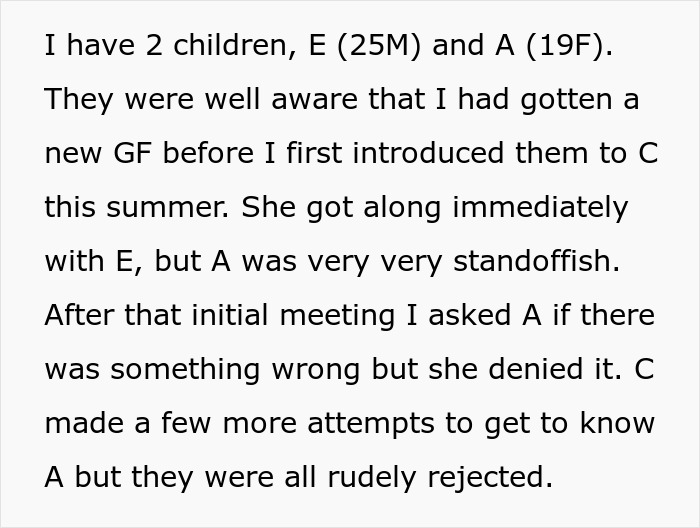
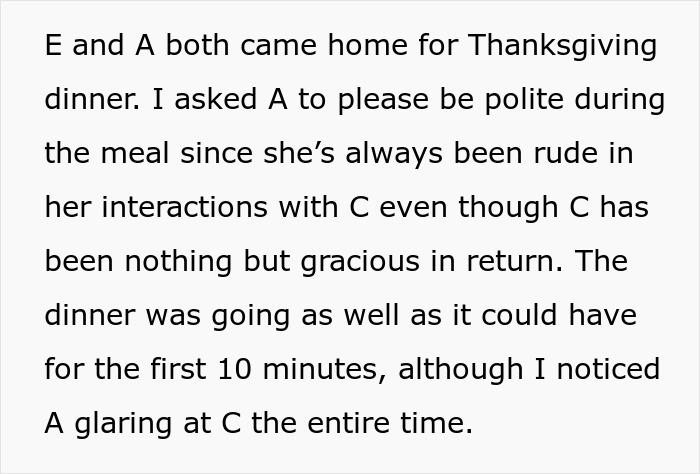


Image credits: YuriArcursPeopleimages / envato (not the actual photo)
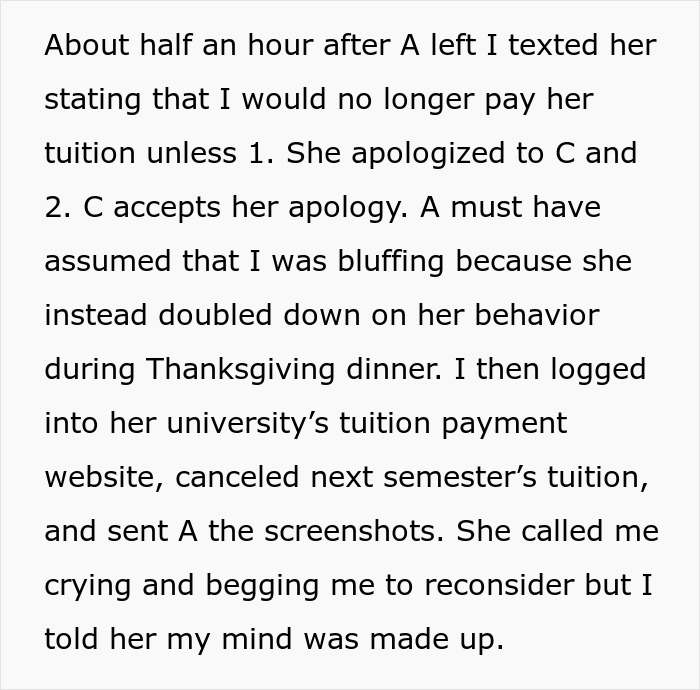
Image credits: ecrpa3943
When a widowed parent starts dating again, adult children can have a hard time accepting the new partner

Image credits: Austin Guevara / pexels (not the actual photo)
Although it’s not an excuse for rude behavior, it can be hard to come to terms with the fact that a widowed parent is starting to date. As family therapist Sarah Hewitt explained to Next Avenue, children, even if they’re adults, often forget to think about their parents as people. In our minds, our parents are our parents, and we tend to forget that they also need companionship, romance, and intimacy.
What’s more, children tend to feel inherent loyalty to their biological parent, especially to the one who passed away. “It is difficult to ‘accept’ a new ‘parent,’ and this does not discriminate when the child is above the age of eighteen or thirty or forty-five,” Hewitt explained.
Psychiatrist Dr. Laura Dabney also noted that the new girlfriend might reopen the wound of the loss. “When a parent starts dating, it’s a painful reminder to the child of their loss. It may not be that you don’t like the woman your father is dating, but that you wish your mom were still alive.”
Children may view their parent’s new partner as an intruder, as someone trying to replace their deceased parent. But in many cases, that simply isn’t true. When dealing with a widowed parent’s new significant other, many experts advise adult children to take a step back and look at the issue as objectively as possible.
The new girlfriend is not here to steal their father, nor does she want to take the place of the lost mother. Although both of these feelings are quite common and valid, adult children should be mindful of their reactions and where they’re coming from. Name-calling and hurling insults at a father’s new girlfriend is hardly the right way to express yourself.
Adult children’s initial reaction to their widowed parent dating again will most likely be negative

Image credits: Liza Summer / pexels (not the actual photo)
As some people in the comments pointed out, the father’s reaction wasn’t very appropriate either. When widowed parents start a new relationship, they should be aware of the fact that their adult children might not accept their new partner into the family immediately.
Clinical Psychologist Stanley Kissel, Ph.D., explains that it’s the responsibility of the parent to reassure his children that they won’t be losing anything. “It is the task of the widower and his new love to take the lead in helping his adult children with their worries. Help them to see that moving on from grief into a loving relationship is a positive step for him.”
It’s a big readjustment on the children’s part, so punishing them for being rude to their partner might only make the process of acceptance more difficult. As commenters said, by punishing his daughter, he’s showing her that the new partner comes first. And the daughter needs reassurance that she’s still his dad and that her mother won’t be forgotten.
As one of the main concerns for children is to lose the widowed parent or the memory of the one who passed, the parent needs to communicate clearly that this will not happen. Grief author Diane Fromme writes that moving on should include memories of the person who passed away. “The new love will be the ‘and,’ not the ‘instead.'”
People in the comments declared that everyone sucked in this situation and said, “Y’all need therapy”
